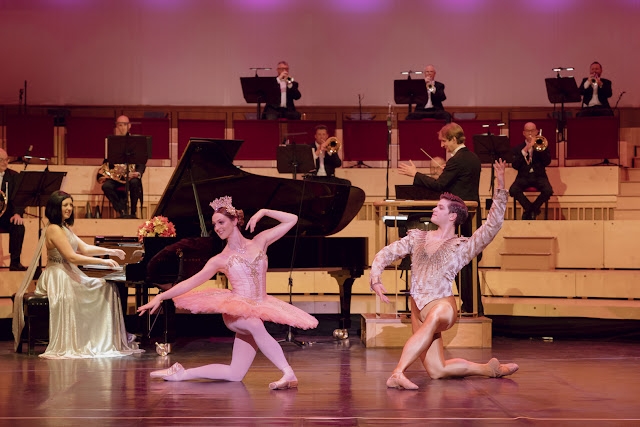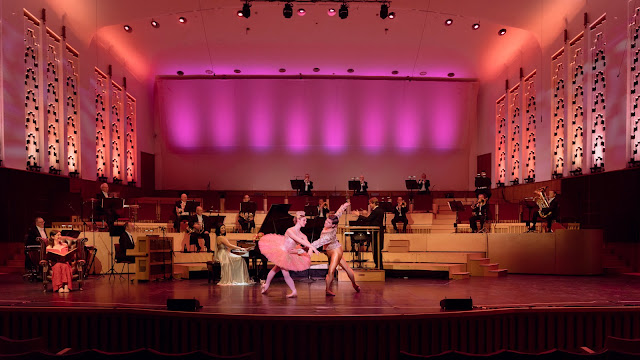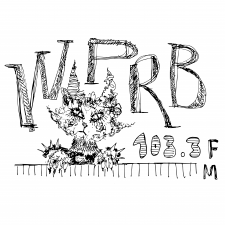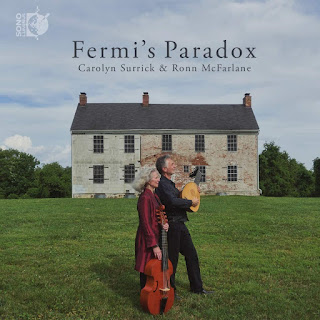 |
| Meyerbeer: Le prophète - Deutsche Oper Berlin (Photo Bettina Stöß) |
Usually, at this time of the year I produce a list of our top 20 operas and concerts that we reviewed during the year. But this has been such a strange year indeed, I am just looking back and being thankful for those that kept the music going. So top of this year's list must be all those who kept live music going, in some shape or form, at a time when it seemed as if music had ceased, notable among these being Wigmore Hall which brought live music back (without an audience) in June. Music took many strange and imaginative forms, and my weekly A Life On-Line column covered as many of these as possible.
Opera Holland Park brought live opera back to the park with a short season of socially distanced outdoor concerts performed by a fine array of artists; for many, the first opportunity since lockdown to hear live music. Having cancelled their planned festival, Waterperry Opera Festival impressively brought together a semi-staged performance of Mozart's Cosi fan Tutte, a truly memorable evening.
Anthony Friend's Bandstand Chamber Festival imaginatively brought live chamber music to the bandstand in Battersea Park where we heard the Maggini Quartet, and the Solem Quartet. And the festival returned as Spotlight Chamber Festival with indoor concerts in December, including Roderick Williams in Schubert's Schwanengesang.
Our first indoor concert following lockdown was the Heath Quartet in fine form at Wigmore Hall, and Elizabeth Llewellyn made her recital debut at the hall with a terrific programme of late romantic songs. At St John's Smith Square, Mark Bebbington, the Royal Philharmonic Orchestra and Jan Latham Koenig showed wit and imagination in a programme of Poulenc and Satie which responded to the restrictions on numbers, whilst the English Concert's fine Purcell programme even managed a premiere!
Tête à Tête: The Opera Festival brought opera audiences indoors with the festival at the Cockpit Theatre in September, where we caught two varied and memorable programmes. And having performed outdoors during the Summer, Glyndebourne Opera brought its Offenbach production indoors, providing an evening of great fun, and the composer's debut at the festival.
In October, I returned to the Conway Hall for a live-streamed pre-concert talk, which meant that I was part of the privileged live audience of five people for Mithras Trio's terrific live-streamed concert which included Tchaikovsky's Piano Trio. At Kings Place, we caught the Orchestra of the Age of Enlightenment in Bach's Cantata BWV 60 'O Ewigkeit, du Donnerwort' as part of Bach, the Universe and Everything.
 |
| Mozart: Cosi fan tutte - Zoe Drummond, Damian Arnold, Nicholas Morton - Waterperry Opera Festival |
Some events such as
Guildhall School of Music's triple bill stayed on-line, whilst
Covent Garden's performance of Handel's
Ariodante and
Opera North's semi-staging of Beethoven's
Fidelio had to do without live audiences. Other companies such as
Opera Sunderland,
Grange Park Opera, and
Northern Opera Group produced specially filmed operas. For our final opera of the year, we were able to visit
The Grange Festival, where Christopher Luscombe's imaginative, small-scale production of Leoncavallo's
Pagliacci made an appearance.
Nigel Foster's London Song Festival carried on impressively, and still managed to give the world premiere of Iain Bell's Thom Gun song cycle, The Man with Night Sweats. We ended the year back at Wigmore Hall, with a superb account of Handel's Nine German Arias from Iestyn Davies and Arcangelo.
There was, of course music making in the earlier part of the year. Tony caught some Beethoven concerts in Paris, François-Frédéric Guy in the piano concertos, Daniel Barenboim in the piano sonatas, whilst I caught the Orchestre National de Lille's first visit to the UK in 20 years. Ermonela Jaho helped Opera Rara celebrate its 50th birthday, and the Portuguese ensemble, Cupertinos, made its UK debut at the Cadogan Hall.
Operatically, the year began in strong form with Opera North's new production of Kurt Weill's Street Scene. There was also a pair of Verdi rarities, Welsh National Opera in Les vêpres Siciliennes and English National Opera in Luisa Miller. We made a welcome trip to Berlin to catch the Deutsche Oper's revivals of its productions of Meyerbeer's Le prophete and Les Huguenots.
English Touring Opera's Spring season included a moving staging of Bach's St John Passion, and a return to the company's production of Handel's Giulio Cesare. And our last opera before lockdown was Joe Hill-Gibbins memorable new production of Mozart's Le nozze di Figaro at English National Opera.
 |
Mozart: The Marriage of Figaro - Rowan Pierce, Hanna Hipp, Louise Alder, chorus - English National Opera 2020
(Photo © Marc Brenner) |































%20in%20The%20Merry%20Widow.%20Credit%20Mihaela%20Bodlovic.%20(2).jpg)

%20in%20Trial%20by%20Jury.%20Credit%20Mihaela%20Bodlovic..jpg)

%20Britten%20Pears%20Arts%20(1).jpg)



